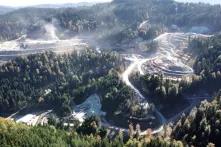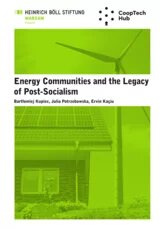Climate, climate changes, energy and policies
Articles
Dossiers
Publications
More publications about Climate, climate changes, energy and policies (11)
© Heinrich-Böll-Stiftung e.V.
Schumannstraße 8
10117 Berlin
T +49 (30) 285 34-0
F +49 (30) 285 34-109
www.boell.de
info@boell.de







